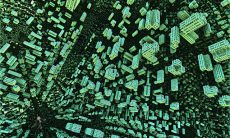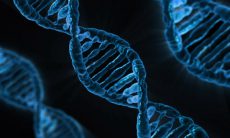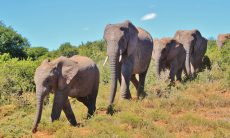This is the fourth and final post on “digital casualties.” Check out the first three posts here, here, and here.
As all things digital get most attention these days, there may be a tendency to forget that we are essentially analog beings living in an analog world, with real issues that, at least for the time being, go much beyond the binary realm of zeroes and ones. Things like hunger, food, health, peace, war, life, death, education, and – why not – intelligence, talent, compassion, friendship and love all predated our current obsession with the digital world.
Even though as an species we mostly abandoned our nomadic ways between 4,o00 and 12,000 years ago, we seem to still keep much of our original foraging behaviour when it comes to our attention span. Instead of wild food resources, we are continuously searching for the latest, greatest, and shiniest theme to occupy are minds and hearts. Digital just happens to be the flavor of the moment – or of this decade.
Sometimes this is completely justified. Recent technology advances in the areas normally associated with the digital revolution – mobile, cloud computing, big data, and social – have considerably changed the way we live and work. On the other side, there’s this silly urge to assess everything around us with the digital lenses, and treat anything that does not fit it as old or not deserving our full attention. If you can’t find it in Google, Facebook, Twitter, YouTube, or SnapChat, it didn’t happen.
There’s a biological model to predict how animals behave in their search for food, called Optimal Foraging Theory. Animals tend to exploit food in patches, and move to a new patch when they start getting diminishing returns from their efforts to get fed. At some point over the next few years, we’ll be seeing that same behavior happening with this digital fever, the same way it happened with the themes of client-server, dot-com, Web 2.0, and social media not too long ago.
Obviously, supporting a nomadic lifestyle was only a good idea before we developed agriculture, which allowed us to not only stay put for longer, but to also diversify our food supply well beyond what “the patch of the year” would offer us. So, while it’s okay and even expected that much of our attention and effort these days is spent on digital transformation initiatives, we need also to take a step back and see the whole picture, which has massive chunks of non-digital pieces that can be at least as important as the digital ones.
That’s especially true in the case of analog talent. It would be really sad if a disproportional slice of brilliant new brains coming down the pipeline decides to dedicate their time solely to digital initiatives, or if the incredible talented individuals in the workplace today working on whatever is still not called digital start feeling unappreciated. We will always need surgeons, thinkers, writers, artists, hairdressers, teachers, carpenters, leaders, and athletes who can perform their jobs at their best even in the absence of digital technology. There’s a whole world of atoms out there that needs our ultimate attention and respect.







